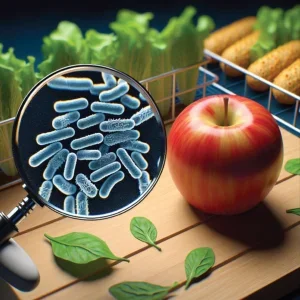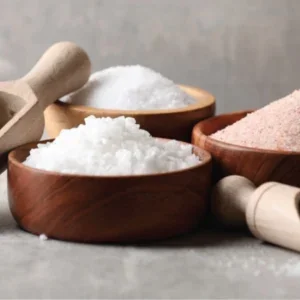For ingredients manufacturers and their clients, the regulatory regime has never been tougher, and the burden of compliance is a cause for grave concern. At least that is the view of some in the market, recently articulated by Cameron MacKugler, founder and CEO of Cloudfarm – the company behind the successful Kickstarter campaign for Seedsheet – who, in a recent statement about food safety, warned that "ingredient providers should be terrified if they have a manufacturing process or formulation that isn’t stable and safe, because privacy is gone."
To Robert Brackett, vice-president and director of the Institute for Food Safety and Health (IFSH) at Illinois Institute of Technology, this view is somewhat extreme. He recognises that there will be growing scrutiny of the processesfor the manufacturing and supply of ingredients, but believes that there is so much at stake that no one should be surprised if the regulators act to raise standards. Customers and food companies have a lot to lose if those standards are not met.
"Many major companies know that their brand is on the line with food safety. It is all about consumer trust. In the past when there have been companies doing a bad job on food safety, it has led to reputational damage for the industry. Any recall hurts everyone," Brackett says.
Raise the bar on food safety
Brackett knows a great deal about food safety and the supply chain having gained a bachelor’s degree in bacteriology, and a master’s and PhD in food microbiology. His study of microbiological food safety, pathogens in foods and the microbial ecology of plant products was succeeded by analysis of the evolution of the global food industry. His book, Industry Perspective on Managing Risks in a Global Economy, for instance, focuses on the need to adopt a global supply chain management approach towards food safety risk management.
He now plays a key role in IFSH, which is a one-of-a-kind applied food-research institute that allows industry stakeholders to develop and exchange knowledge, experience and expertise to address key issues in food safety, food defence and nutrition. Brackett himself is responsible for executive leadership of IFSH and the National Center for Food Safety and Technology (NCFST).
In recent presentations, he has looked at the challenges arising from the management of a global supply chain for ingredients, noting the effects of macro factors such as the increasing global population, of climate change and the diminishing availability of agricultural land, urbanisation and, not least, new food safety legislation. Changes in regulation go hand in hand with the growing need for many countries to import more food and ingredients – and some ingredients can only be sourced abroad – which itself necessitates a drive for legislative harmonisation or equivalency.
In developed economies, the legislation must also reflect changing customer expectations and food safety risks. Consumers want a wider variety of higher-quality foods, including more fresh and natural foods, and fewer processed ingredients and preservatives, as well as more semi-prepared meals.
Health issues and changing demographics also play a big role in determining food safety priorities. In the US, for instance, the population is aging – more than 17% is over 60 – and 64% of adults are classed as overweight. Furthermore, 44% of the non-institutionalised population reports taking one or more prescription medications during the past month.
"Consumers are more informed in some ways, and there is a global trend among the public towards ‘chemophobia’ – any complicated chemical name on the ingredients list seems bad, even if it has proven safe for many years – and is way less important than, say, microbial hazards," says Brackett. "Consumers don’t necessarily understand the complexities of food safety.
"The regulators in the US and Europe are in the position of reacting to political entities and policymakers, and also responding to the concerns of consumers. They must balance the political and the scientific. No one is saying that privacy about processes is gone under the new laws – some processes are commercially confidential, although the regulators may have seen them – but the new legislation does necessitate analysis of food safety, including ingredients sourced at home and abroad," he adds.
The letter of the law
Regulatory change at a national level is happening around the world – from China to Canada – but FDA’s Food Safety Modernization Act (FSMA) in the US exemplifies many of the key issues that are at stake. It is driven by a number of food safety incidents (see table, above) that have led to a crackdown on food safety infractions to highlight the importance of robust safety procedures and quick responses.
The FSMA – which is without doubt the most important change to US food safety legislation in more than 70 years, involves the creation of a new food safety system backed up by a broad prevention mandate and measures to ensure accountability. At its core, it provides a new system of import oversight and emphasises the importance of establishing partnerships to promote farm-to-table responsibility throughout the supply chain.
Signed into law in 2011, having been developed through broad coalition, the act aims to ensure the safety of the US food supply chain by shifting the focus from contamination response to prevention. This year, the Preventive Controls for Human Food rule and Preventive Controls for Animal Food rule were made final, and compliance dates for some businesses were set for September 2016. These rules – finalised after an extensive outreach effort and incorporating input from farmers, consumers, the food industry and academic experts – are designed to create a flexible yet targeted approach to food safety.
The act’s key themes include improvement of the capacity to detect, prevent and respond to food safety issues, specific measures targeting the safety of imported foods and greater partnering between the agencies involved in food safety management. FDA now has mandatory recall authority for all food products and will have access to records – including industry food safety plans and records documenting the implementation of those plans. Verification of foreign suppliers is also a key focus of the act.
"With respect to ingredients regarded as safe, there are calls for regulatory agencies to have a more formal process for investigating the safety of ingredients and additives," says Brackett. "The agencies may look more closely at these issues, so manufacturers should get ahead of the regulators and be more proactive.
"Companies may not have done well enough on documenting their sourcing and processes, so they should do that more thoroughly, and be able to show the rationale to critics and regulators. The problem is that they are comfortable doing what they already do. Nevertheless, they should revisit their processes and ensure that what they are doing is right. The new legislation is not terrifying, it is just good due diligence. The new regulations and the behaviours they necessitate may increase consumer confidence in the increasingly complex global food supply chain."
Getting ahead of the game
New regulations such as the FSMA are attempts to keep in step with the global supply chain for ingredients as it becomes wider and more complex. The burden of compliance is growing, but Brackett has some simple recommendations for how to keep up – and the good news is that most of them boil down to simple good sense and best practice.
The first element that Brackett highlights is hazard analysis, which comes down to vigilance about potential risks and the diligent management of relationships with suppliers.
"Know your supplier. In the past, companies may have sourced from a known and reputable supplier, but there may be times now when they need to turn to a different spot supplier where the risk is greater. So it pays to have a predetermined list of suppliers they can justify from a food safety perspective.
The other option is to choose a supplier whose food safety processes can be easily verified," he suggests.
Brackett further advocates rigorous monitoring procedures, to ensure that companies are aware of any problems as they arise, and preventive controls that keep those risks to a minimum.
"Transparency is essential. There may be complications if you buy ingredients from a moderator or broker. Whoever owns the ingredient when it comes into the country is responsible for food safety aspects, so you must ensure due diligence," he adds.
"You have to critically examine each ingredient in your formulation looking for possible contaminants such as agricultural chemicals. Thorough analysis is required, and you need to implement controls that address and limit the potential hazards you might be exposed to. Ensure your procurement procedures are robust. All of that is easier when you know your supplier."
It is naive to think that no problems will ever arise in the ingredients supply chain, so the advance planning of corrective action is essential. Companies must know what to do if a food safety issue does arise, and a quick response is more likely when a clear and well understood plan of action to remedy the situation is already in place.
Brackett’s final recommendation is to enhance record-keeping processes – not least because of the access to records that regulators such as FDA now require.
"Documentation and record-keeping provide a corporate memory that you can show to regulators. This goes along with a verification system to ensure that your plants have implemented the controls you have put in place. These controls and verification processes have to be reviewed thoroughly and often. Things will always change," says Brackett.
Companies will need to change the way they think in terms of compliance and brand protection, but the new legislative paradigm only crystallises the challenges they already face due to the evolution and expansion of their supply chains. In terms of food safety, prevention is the key, and the need for regulatory compliance merely supports that approach.
"It is important that the whole industry has a discussion in the right forum, and the trade associations could do more to be more open. The industry must stay ahead of the game on this issue," stresses Brackett.
"A pilot who has been flying for 40 years knows how to fly a plane instinctively but will still do a checklist before every flight. The food industry should do the same and always stick to its checklist."






